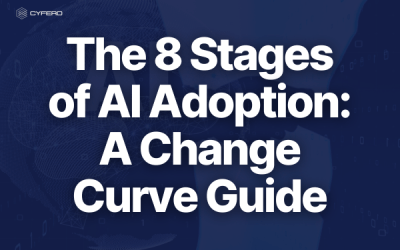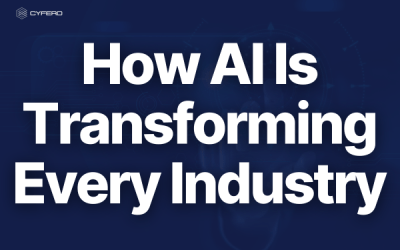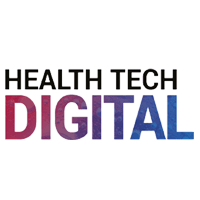Tackling the Escalating US Healthcare Cost Crisis Through AI Innovation
The staggering cost of healthcare in the United States has evolved into a pressing issue that affects millions. With the recent spike in the cost of living, the burden of affording medical treatment has grown exponentially. A startling revelation from a 2022 report by KFF (https://www.kff.org/health-costs/issue-brief/americans-challenges-with-health-care-costs/) sheds light on the severity of the situation — nearly one-third of the US population has been forced to postpone essential healthcare treatments due to the overwhelming financial implications. In this article, we will explore the reasons why healthcare costs are so high in the US and what the introduction of artificial intelligence can do to reduce them.
Difficulty Affording Medical Costs
Contrary to common belief, health insurance doesn’t always provide an impenetrable shield against the daunting expenses of healthcare. Alarmingly, over a third (approximately 37%) of adults with health insurance admit that they do not uptake recommended treatments due to high costs. This clearly highlights the need for a new strategy to be implemented to make healthcare more affordable. If such a significant portion of individuals with health insurance admit to avoiding treatment, it’s an unsettling glimpse into the struggles faced by those without any coverage.
The KFF report further dissects the types of healthcare most likely to be postponed. Dental care emerges as a staggering leader with a 35% likelihood of treatment deferral, closely followed by vision services at around 25%, and visits to doctor’s offices at a substantial 24%.
The Prescription Drug Predicament
The escalating costs of prescription drugs have pushed some individuals to extreme measures, including cutting pills in half or even skipping doses to avoid the financial burden of replacing their medications. This dangerous trend highlights the extent to which healthcare costs are compelling people to compromise their own well-being to save money.
Drowning in Healthcare Debt
The KFF’s efforts to explore this issue relates back to a June 2022 report that reveals a saddening reality — 41% of US adults find themselves ensnared in some form of medical or dental debt, with 24% of them unable to repay these debts. These statistics serve as a glaring call to action, demanding a transformation in the healthcare landscape.
Healthcare’s Hero: Artificial Intelligence
AI has the potential to address various aspects of the inflating cost of healthcare in the United States by introducing efficiencies, improving accuracy, enhancing preventative measures, and promoting cost-effectiveness as well as:
Efficiency Enhancement — AI can seamlessly automate administrative tasks that are currently carried out by healthcare workers, freeing up valuable time. Scheduling appointments, processing insurance claims, and managing electronic health records can all be streamlined through AI. This heightened efficiency can lead to improved patient care and reduced costs.
Improved Accuracy — AI’s integration can lead to heightened accuracy in diagnoses and treatment recommendations. For instance, AI-powered image tools can aid doctors in identifying cancer cells more precisely. AI-driven chatbots can provide patients with round-the-clock access to medical guidance, reducing the need for trips to out-of-hours facilities or Urgent Care
Preventative Insights — AI’s ability can identify patients at risk of certain diseases and tailor interventions for prevention. For example, AI can now accurately predict the likelihood of a stroke in patients, which means they can take up preventative lifestyle changes reducing the risk of a cardiac arrest. Algorithms fuelled by AI can analyze electronic health record data to identify patients vulnerable to heart disease, prompting timely reminders for exercise and healthy eating. This preventative approach can significantly curb healthcare expenses by adverting costly treatments later.
Another example of how AI can be used as a preventative tool is through the monitoring of metal health. Patients who are being referred to GPs and counsellors are being placed on lengthy waiting lists. During this time, their mental health could be deteriorating, potentially making them a risk to themselves and others. With Cyferds groundbreaking AI, we could help to make this process less daunting. Our AI could create weekly surveys asking the patients about their current mental wellbeing and predict whether irregularities in their answers could suggest their mental health is worsening, making them a high-risk patient. In the long run, a preventative approach to healthcare instead of a reactive approach will result in fewer expenses.
Cost-effectiveness — AI can fuel the development of innovative treatments and therapies that are more budget-friendly than traditional methods. AI-powered drug testing tools can uncover novel molecules for disease treatment, offering a more cost-effective approach to development and manufacturing. In the long run, this innovation can significantly reduce healthcare expenses.
In a landscape rife with growing healthcare costs, the introduction of Cyferd’s Neural Genesis holds transformative potential. As AI continues to advance, its integration into the healthcare world could be the game-changer that leads to a more accessible, efficient, and cost-effective healthcare system in the United States.
How Cyferd will benefit healthcare providers
With Cyferd’s transformative data platform, healthcare providers can say goodbye to data silos. Silos of data are an ever-pressing issue in this industry; records of patient’s data, treatment plans, and general key information is being stored in multiple registries meaning accessing the right data at the right time, is greatly reduced. By offering a streamlined data platform, healthcare providers would have this information at their fingertips, providing them with a holistic view of the patient, resulting in more timely and accurate treatment.
Cyferd’s revolutionary AI software, Neural Genesis, can be the catalyst to kickstart this process. With its abilities to embed predictive models into clinical workflows, we can drive the power of AI into the hands of clinicians when they’re making decisions.
By having a streamlined and accessible data platform, less time will be spent in software development and more time can be spent with patients and developing the latest medicines. The demand for AI in the healthcare system is at an all-time high, and Neural Genesis is the answer you’ve been looking for.
The 8 Stages of AI Adoption: A Change Curve Guide
From SageX3 Limits to Full Flexibility: Harvest Pet Products
Seamless Salesforce Integration with Cyferd
How to Fix a Fragmented Tech Stack and Cut Costs
How AI Is Transforming Every Industry in 2025
How to Build AI-Powered Apps That Guide Better Decisions
Case Study: TesTex Transforms Operations with Tick9 & Cyferd
How Cyferd Made Voult Possible – And Why That Matters for Insurance
Why tick9 Partners with Cyferd to Accelerate Results
Optimize Your Tech Stack for Maximum Business ROI
Cyferd in the Press
As seen in
Let’s Get Started
Ready to Drive Transformation?
New York
Americas Tower
1177 6th Avenue
5th Floor
New York
NY 10036
London
2nd Floor,
Berkeley Square House,
Berkeley Square,
London W1J 6BD



















